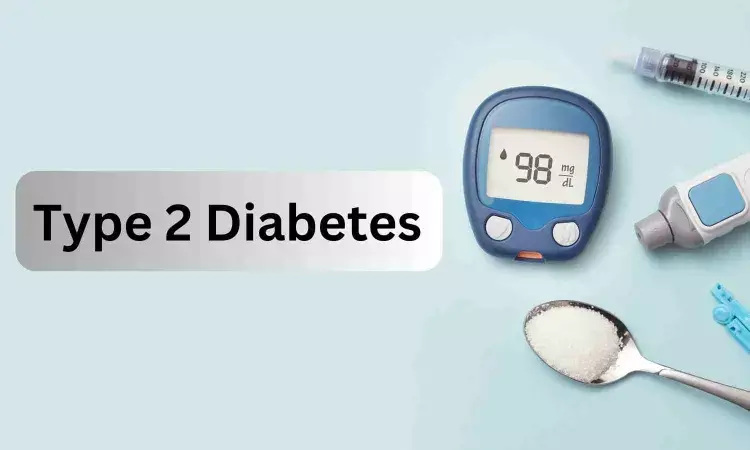- Home
- Medical news & Guidelines
- Anesthesiology
- Cardiology and CTVS
- Critical Care
- Dentistry
- Dermatology
- Diabetes and Endocrinology
- ENT
- Gastroenterology
- Medicine
- Nephrology
- Neurology
- Obstretics-Gynaecology
- Oncology
- Ophthalmology
- Orthopaedics
- Pediatrics-Neonatology
- Psychiatry
- Pulmonology
- Radiology
- Surgery
- Urology
- Laboratory Medicine
- Diet
- Nursing
- Paramedical
- Physiotherapy
- Health news
- Fact Check
- Bone Health Fact Check
- Brain Health Fact Check
- Cancer Related Fact Check
- Child Care Fact Check
- Dental and oral health fact check
- Diabetes and metabolic health fact check
- Diet and Nutrition Fact Check
- Eye and ENT Care Fact Check
- Fitness fact check
- Gut health fact check
- Heart health fact check
- Kidney health fact check
- Medical education fact check
- Men's health fact check
- Respiratory fact check
- Skin and hair care fact check
- Vaccine and Immunization fact check
- Women's health fact check
- AYUSH
- State News
- Andaman and Nicobar Islands
- Andhra Pradesh
- Arunachal Pradesh
- Assam
- Bihar
- Chandigarh
- Chattisgarh
- Dadra and Nagar Haveli
- Daman and Diu
- Delhi
- Goa
- Gujarat
- Haryana
- Himachal Pradesh
- Jammu & Kashmir
- Jharkhand
- Karnataka
- Kerala
- Ladakh
- Lakshadweep
- Madhya Pradesh
- Maharashtra
- Manipur
- Meghalaya
- Mizoram
- Nagaland
- Odisha
- Puducherry
- Punjab
- Rajasthan
- Sikkim
- Tamil Nadu
- Telangana
- Tripura
- Uttar Pradesh
- Uttrakhand
- West Bengal
- Medical Education
- Industry
Abnormal gastric electrical rhythm in diabetes patients may predict high FBG and diabetic cardiac autonomic neuropathy: Study

Researchers have found that abnormal gastric electrical rhythm (AGER) in patients with type 2 diabetes mellitus (T2DM) is significantly associated with high fasting blood glucose (FBG) levels and diabetic cardiac autonomic neuropathy (DCAN). This conclusion stems from a comprehensive study conducted at the Second Affiliated Hospital of Soochow University, emphasizing the importance of electrogastrogram (EGG) examinations in diabetic patients with gastrointestinal symptoms. The study was published in the journal Endocrine by Xixi Wang and colleagues.
Type 2 diabetes mellitus (T2DM) is a chronic condition that affects millions worldwide, often leading to various complications, including gastrointestinal disorders. Abnormal gastric electrical rhythm (AGER) is one such complication that can significantly impact the quality of life. Understanding the prevalence and influencing factors of AGER in T2DM patients is crucial for better management and treatment strategies.
This cross-sectional study included 65 T2DM patients hospitalized from December 2020 to December 2021. Detailed demographic, clinical, and medical history data were collected for each participant. Key parameters such as body mass index (BMI), duration of diabetes, anti-diabetic therapies, high blood pressure (HBP) history, smoking history, and medication history were documented. Laboratory tests measured biochemical parameters, glycosylated hemoglobin (HbA1c), fasting C-peptide, 2-hour postprandial C-peptide, 24-hour urine total protein (24h UTP), urine microalbumin creatinine ratio (UACR), and estimated glomerular filtration rate (eGFR).
Participants underwent electrogastrogram (EGG) examinations and were assessed using the Gastroparesis Cardinal Symptom Index (GCSI), gastric emptying ultrasound, fundus examination, carotid artery ultrasonography, cardiac autonomic function test, and heart rate variability (HRV) analysis. Based on EGG results, participants were divided into normal gastric electrical rhythm (NGER) and abnormal gastric electrical rhythm (AGER) groups.
• Significant differences were observed between the AGER and NGER groups.
• Fasting Blood Glucose (FBG): Higher in the AGER group.
• HbA1c Levels: Elevated in the AGER group.
• Diabetic Peripheral Neuropathy (DPN): More prevalent in the AGER group.
• Diabetic Cardiac Autonomic Neuropathy (DCAN): Significantly higher in the AGER group.
• Heart Rate Variability (HRV): Lower low-frequency (LF) and high-frequency (HF) indicators in the AGER group.
• Gastrointestinal Symptoms: Increased prevalence of feeling excessively full after meals, loss of appetite, and visibly larger stomach or belly after meals in the AGER group.
• Multiple logistic regression analysis identified FBG and the prevalence of DCAN as independent risk factors for AGER.
The study highlights a clear link between high fasting blood glucose levels and the presence of DCAN with abnormal gastric electrical rhythm in T2DM patients. These findings suggest that monitoring and managing blood glucose levels and assessing cardiac autonomic function could be critical in mitigating gastrointestinal complications in diabetic patients.
This study underscores the importance of EGG examinations for T2DM patients presenting with gastrointestinal symptoms, especially those with high fasting blood glucose levels and signs of diabetic cardiac autonomic neuropathy. Proactive management and regular monitoring of these patients can help in early detection and better management of abnormal gastric electrical rhythm, potentially improving their overall quality of life.
Reference:
Wang, X., Ma, L., Jiang, M., Zhu, H., Ni, C., Yang, X., Hu, J., & Zhang, H.-H. (2024). Analysis of gastric electrical rhythm in patients with type 2 diabetes mellitus. Endocrine. https://doi.org/10.1007/s12020-024-03908-y
Dr Riya Dave has completed dentistry from Gujarat University in 2022. She is a dentist and accomplished medical and scientific writer known for her commitment to bridging the gap between clinical expertise and accessible healthcare information. She has been actively involved in writing blogs related to health and wellness.
Dr Kamal Kant Kohli-MBBS, DTCD- a chest specialist with more than 30 years of practice and a flair for writing clinical articles, Dr Kamal Kant Kohli joined Medical Dialogues as a Chief Editor of Medical News. Besides writing articles, as an editor, he proofreads and verifies all the medical content published on Medical Dialogues including those coming from journals, studies,medical conferences,guidelines etc. Email: drkohli@medicaldialogues.in. Contact no. 011-43720751


